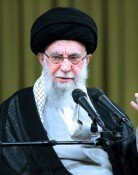Public Employees Will Have Flexible Working Hours
Public Employees Will Have Flexible Working Hours
Posted August. 25, 2004 21:57,
Beginning next year, the public institutions (central government agencies, local governments, and state-owned companies) will introduce a system of flexible working hours, which will allow them to choose their hours of starting and finishing work in an attempt to reduce energy waste due to traffic congestion during rush hours.
In addition, the public institutions should obligatorily use hybrid vehicles (next-generation cars using both gasoline and electric batteries) starting from 2006, and there will be tax benefits, including auto tax relief, available to users of hybrid vehicles starting from 2008.
During the National Energy Saving Committee led by Prime Minister Lee Hae-chan and 25 participants of related ministers and civil group leaders yesterday, the government announced a long- and short-term strategy to enhance energy efficiency nationwide in an era of high oil prices.
Most of all, the government decided to introduce flexible working hours to the public institutions for the purpose of saving energy in transportation. As a result, public agencies will be able to self-control their working hours in the range of three hours before or after the core working hours of 10:00 a.m. to 4:00 p.m.
In addition, hybrid vehicles, which are known for discharging less pollution than regular gasoline engine vehicles and which possess fine oil-saving systems, will be compulsorily purchased by the public institutions staring from 2006 in a view to encourage their common use earlier.
Along with this plan, the government will introduce Bus Rapid Transit (BRT) starting from next year. The Ministry of Commerce, Industry and Energy (MOCIE) explained that BRT will offer more comfortable and faster transportation by traveling exclusive bus lines which are installed in the major roads that link metropolitan cities to peripheral cities.
The government has also decided to promote the E-Top Program, which is aimed at upgrading the level of energy efficiency of 30 major items with energy-saving potential up to the top level in the world. Those companies involved in this program will be assisted with facility-rebuilding funds first from the pool of available funds set aside for promoting rational energy use, as well as benefit from a reduced annual interest rate of two percent from the current three percent.
The government also plans to consider energy efficiency foremost when it has to purchase electronic products. In particular, public agencies will be asked to purchase products with less than one W of waiting power for eight items such as TVs, audio equipment, video equipment, and other electronic items beginning next year.
Newly-constructed buildings will also require energy efficiency grade evaluations starting from 2006. When it comes to buying or selling existing buildings, their energy efficiency grade evaluations will also be duly exchanged.
Chi-Young Shin higgledy@donga.com




![[단독]폴란드, 韓 해군 최초 잠수함 ‘장보고함’ 무상 양도 안받기로](https://dimg.donga.com/c/138/175/90/1/wps/NEWS/IMAGE/2026/02/27/133437397.1.jpg)


